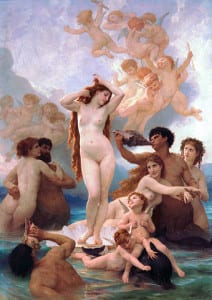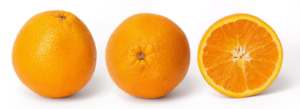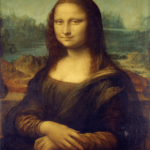
Would you say, “It takes years to study aesthetic in art!” or ask, “Is appreciating a simple orange utterly different than judging a masterpiece of artwork?”

Debating what is beautiful can be sometimes hazardous. I often got myself into serious arguments with curators of the “modern art establishment connoisseur”.
I am a painter, but also a physicist, so I believe in facts. In this science abstract, the results showed that the most important part of the brain for aesthetic appraisal was the anterior insula: a part of the brain that sits within one of the deep folds of the cerebral cortex. When we read deep in the cerebral cortex, that means we are dealing with the very basics: eating, drinking and reproduction.
Ouch! I see a masterpiece…

Being a classical painter, my quest for beauty is an endless one, just like yours I believe. This study explains the gut feeling I have when I see a remarkable work of art, hear a beautiful music piece or witness a dazzling sunset.

The next time I hear experts telling me that classical art is only good for decorating walls and that they’d prefer an abstract piece over, say, the Mona Lisa… I will have my doubts.
Mary Rose says
I don’t know whih comes first, the appreciation of an orange or time spent studying art. I think at first art appreciation is intuitive. I responded to color as a teenager. But I preferred literature and baseball to art UNTIL I saw “The Blue Vase” by Cezanne at the age of 19, a reproduction in a department store. It was truly love at first sight. He is still my favorite painter, many years later. And from that, I learned about art and eventually became a photographer and painter. I will leave it to the experts to figure it out. I’m grateful for it. I don’t need to know where my good luck came from. And I still love literature and baseball.
Mary Rose
Tom says
Scott Burdick covered this topic in a youtube video quite well. I shared with him as I will say here, that being a representational painter myself, but having a abstract painting wife, I see both sides. While you may be into science, you also just have an opinion, one which thinks you’re right and cannot possibly understand how someone might find an abstract painting beautiful or interesting to their taste. There is a bothersome trend to classical painters of many choosing abstracts over classical works of art. But there are plenty of ugly and scary classical paintings depicting war and hatefully things too right? Your last comment says it all, “you have your doubts.” Try avoid being so lofty as to think your opinion is the only one that can be right. Let art be art and let others express themselves freely as they choose and try not to dissect their choices, it will just ruin you. Why is it that someone always has to be right to make that which they do, valid? Creating art is the last real freedom we have, let’s keep it that way.
Marie-Eve Lauzier says
I am not saying that you cannot appreciate modern art by this article. I am saying that we are wired, deaply wired to appreciate beauty. I won’t believe somebody telling me he find abstract art more beautiful than classical one. They put random people AND art specialists in a FMRI and got those datas, period! This is why I was so surprised by this article. I think that you need to be educated to like modern art. This article tells it is innate to like classical art.
Tom says
Dear, Marie-Eve Lauzier, with complete respect for your opinion, your comment – “I don’t believe somebody telling me he finds abstract art more beautiful than classical one” is exactly like you saying, I don’t believe someone telling me they like coffee more than soda pop. I have sold my art and that of others at a very high level for 30 years now and I will tell you that I once used to be surprised to see people buy something they LOVED that I didn’t even like and I will honestly share that I learned, (as I think you should) to appreciate different tastes. It’s what makes the world go around. Second point, you seem to be defining all classical paintings as that of beauty, when in fact, nothing could be farther from the truth. Many art dark, unhappy narratives of an ugly world. Beauty IS in the eye of the beholder, screw science, wiring and such. Love what you love, do what you love and don’t beat yourself up with all of this. Have a great day, Tom
Marvin Steel says
Emotion in painting is the essential quality no matter which technique.